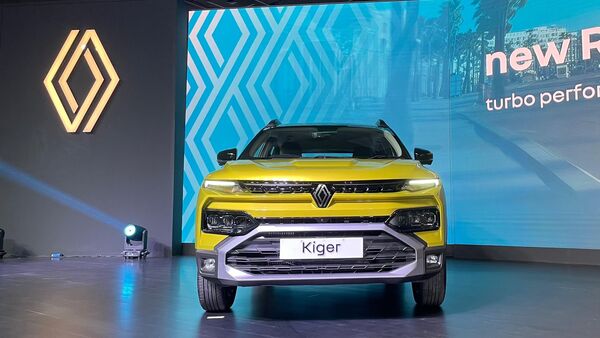- Renault India confirms that E10 compliant cars can safely use E20 fuel after extensive tests by IOC and ARAI. The draft report confirms no adverse effects from using E20, addressing customer concerns regarding compatibility with E10 vehicles.

View Personalised Offers on
Renault India has issued a statement confirming that their cars that are E10 compliant can run on E20 fuel without any serious challenges. To address the concerns around E10-compliant cars, the Indian Oil Corporation (IOC) and the Automotive Research Association of India (ARAI) carried out extensive durability tests. These tests covered multiple fuel combinations, including running E20 in vehicles originally certified for E10. The draft report, circulated to all automakers under a directive from the Ministry of Petroleum and Natural Gas (MoPNG), confirmed that today’s on-road vehicles can safely use E20. It further concluded that using E20 in E10-certified cars does not cause any adverse effects.
The statement issued by Renault India says, “Recent queries regarding the use of E20 fuel in vehicles tested and certified for E10 have prompted the need for clarification based on concerns raised by customers.”
“As per the then prevailing norms, E-10 was the declared fuel for the purposes of Type Approval and Production tests of the said Renault Triber (Model 2022).
To answer the specific query on E10-compliant cars, a rigorous durability testing was conducted jointly by Indian Oil Corporation (IOC) and ARAI, involving various fuel combinations, including the use of E20 fuel in vehicles certified for E10. The draft report of this study, shared with all OEMs (Pursuant to MoPNG letter No. P-13045(18)/19/2017-CC(E-13946)), while acknowledging that the present on-road vehicles are compatible with E20, concluded that there is no adverse impact from using E20 fuel in E10-compliant vehicles.
Based on these findings, no serious challenges have been perceived in Renault cars plying on roads using E20 fuel in E10-compliant and tested vehicles.” says the statement.
What is E20 fuel?
E20 fuel is basically ethanol-blended petrol. The ‘20’ denotes that the one litre of petrol contains 20 per cent ethanol.
Disadvantages of Ethanol
Ethanol carries significantly less energy per litre than conventional petrol. As a result, the engine needs to consume roughly one-third more fuel to generate the same level of power, which explains the noticeable dip in fuel efficiency.
In older vehicles, mostly the non-fuel-injected ones, the materials used for rubber hoses, gaskets, seals, etc., might not be as durable as those manufactured later due to the use of E20. This is because ethanol is corrosive in nature and slowly destroys the rubber parts that are used in the engine. Yes, the rubber does become brittle overtime and needs replacing but the rate of part failure increases with ethanol.
Another major drawback of ethanol is that it is hygroscopic, meaning it readily absorbs moisture from the surroundings. When ethanol-blended fuel comes into contact with water, it mixes uniformly with it. The problem arises if this mixture enters the engine—while ethanol can be compressed by the pistons, water cannot, which can lead to engine issues.
Get insights into Upcoming Cars In India, Electric Vehicles, Upcoming Bikes in India and cutting-edge technology transforming the automotive landscape.
First Published Date: 28 Aug 2025, 16:34 pm IST







